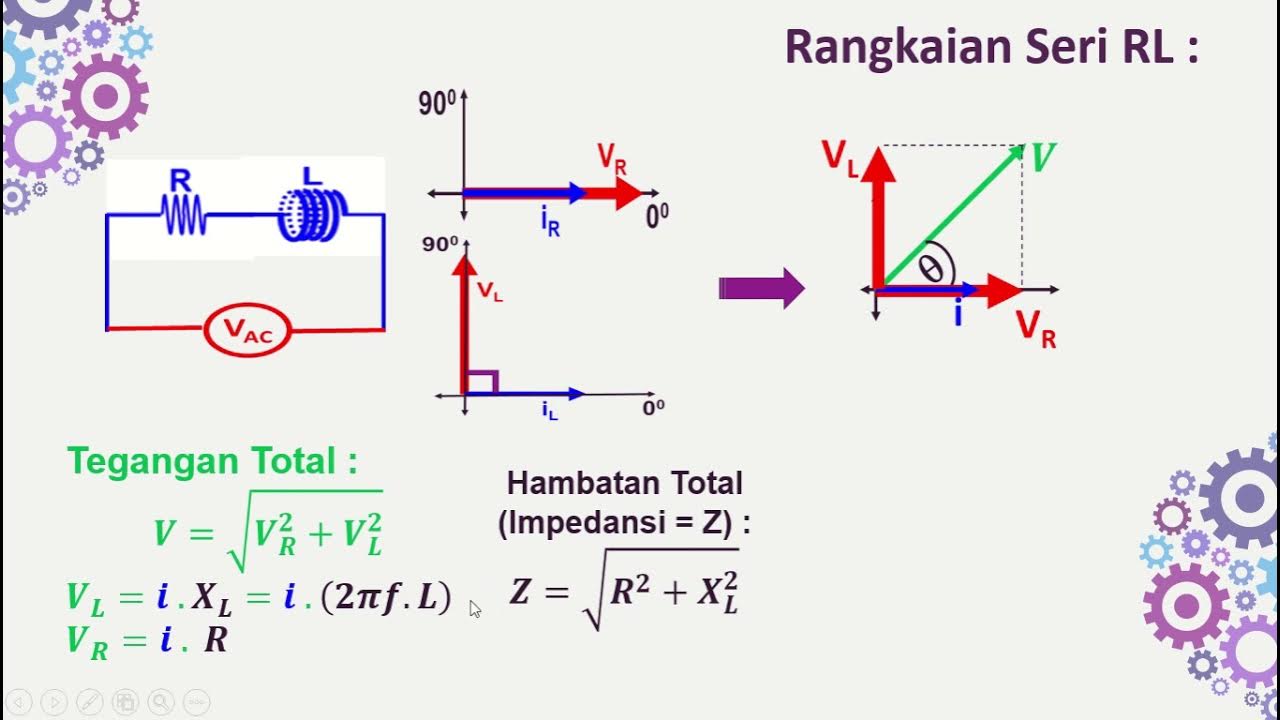Electrical Engineering: Ch 8: RC & RL Circuits (29 of 43) Natural Response and Forced Response
Summary
TLDRIn this video, the concepts of natural and forced responses in electrical circuits are explored using an RC circuit as an example. The natural response arises from existing energy stored in the capacitor, while the forced response is due to the application of an external voltage source. At time equals zero, both responses occur simultaneously, with the natural response decaying over time and the forced response driving current through the circuit. Together, these responses create the complete circuit response, illustrating the interplay between stored energy and external influences.
Takeaways
- 😀 The natural response of a circuit comes from existing energy stored in components, primarily the capacitor.
- ⚡ The forced response is generated by the input from an external source, such as a voltage or current applied to the circuit.
- 🔌 In an RC circuit, the total response is the sum of both the natural and forced responses.
- ⏳ The natural response tends to diminish over time, typically within five time constants.
- 📈 The forced response activates immediately when the circuit is engaged, driven by the external voltage source.
- 🔋 Initially, the voltage across the capacitor influences the circuit behavior before the switch is closed.
- 💡 Graphical representations of the responses help visualize the transient behavior of the circuit over time.
- 🔄 The natural response gradually decays while the forced response maintains its effect as long as the input is present.
- 🔍 Understanding both responses is crucial for analyzing circuit behavior under different conditions.
- 🛠️ These concepts are fundamental in electrical engineering and are applicable in various practical scenarios.
Q & A
What is the primary focus of the video?
-The video focuses on the concepts of natural response and forced response in electrical circuits, particularly in RC circuits.
What is the natural response of a circuit?
-The natural response occurs due to any existing or stored energy in the circuit, primarily from charges on the capacitor.
How is the forced response defined?
-The forced response is initiated by an external input, such as a source voltage applied to the circuit.
What happens at time equals zero in the circuit?
-At time equals zero, the source voltage is applied, and both the natural and forced responses begin simultaneously.
How does the natural response change over time?
-The natural response diminishes over time, typically observed to last for about five time constants before it effectively dies out.
What does the complete response of the circuit consist of?
-The complete response of the circuit is the sum of the natural response and the forced response.
What graphical representation is mentioned in the video?
-The video includes a graphical representation showing the natural response curve decreasing over time and the forced response increasing immediately upon closing the switch.
Why is it important to understand the natural and forced responses?
-Understanding these responses is crucial for analyzing circuit behavior, particularly during the transient state after a voltage source is applied.
What role does the capacitor play in the natural response?
-The capacitor stores energy and voltage, which contributes to the natural response of the circuit when there is already voltage across it at the moment the input is applied.
Can the forced response be caused by inputs other than voltage?
-Yes, while the video focuses on a voltage source, the forced response can also be driven by a source current.
Outlines

Cette section est réservée aux utilisateurs payants. Améliorez votre compte pour accéder à cette section.
Améliorer maintenantMindmap

Cette section est réservée aux utilisateurs payants. Améliorez votre compte pour accéder à cette section.
Améliorer maintenantKeywords

Cette section est réservée aux utilisateurs payants. Améliorez votre compte pour accéder à cette section.
Améliorer maintenantHighlights

Cette section est réservée aux utilisateurs payants. Améliorez votre compte pour accéder à cette section.
Améliorer maintenantTranscripts

Cette section est réservée aux utilisateurs payants. Améliorez votre compte pour accéder à cette section.
Améliorer maintenantVoir Plus de Vidéos Connexes

LTspice simulation | Examples in LTspice | RC Circuits | SPICE simulation

RANGKAIAN LISTRIK : Respons Alami dan Respons Steady State ( Part 25 )

Rangkaian Seri RL-RC-LC dengan Sumber AC

Electrical Engineering: Basic Laws (3 of 31) Open and Short Circuits

Listrik Dinamis-Rangkaian Listrik (Hukum Ohm) (Part 3)

Simple Circuits | Electricity | Physics | FuseSchool
5.0 / 5 (0 votes)
